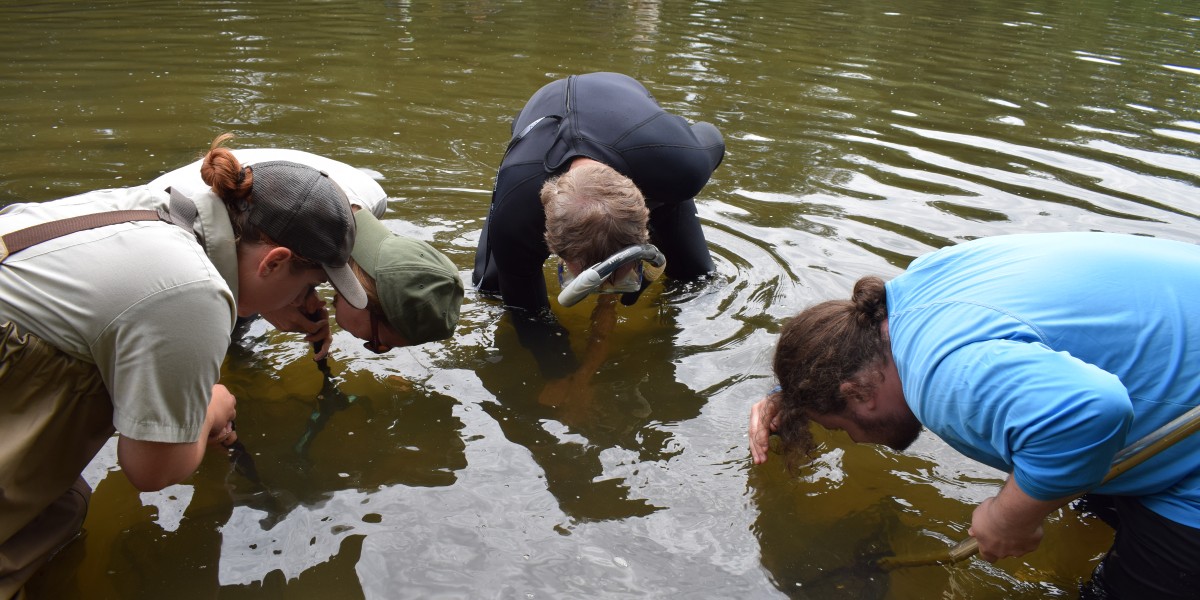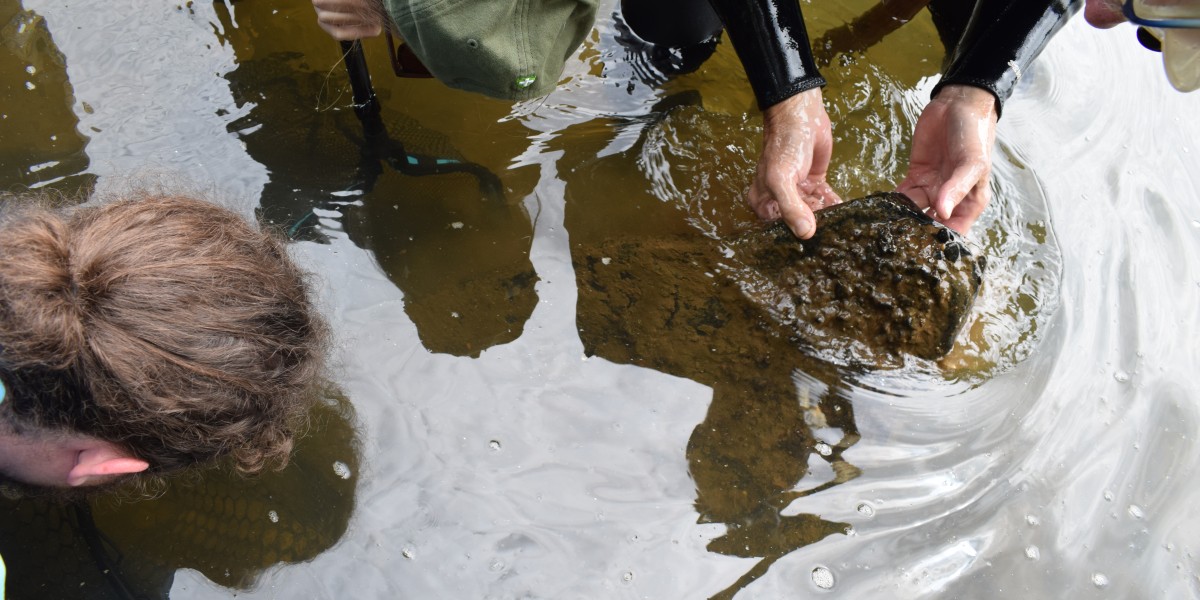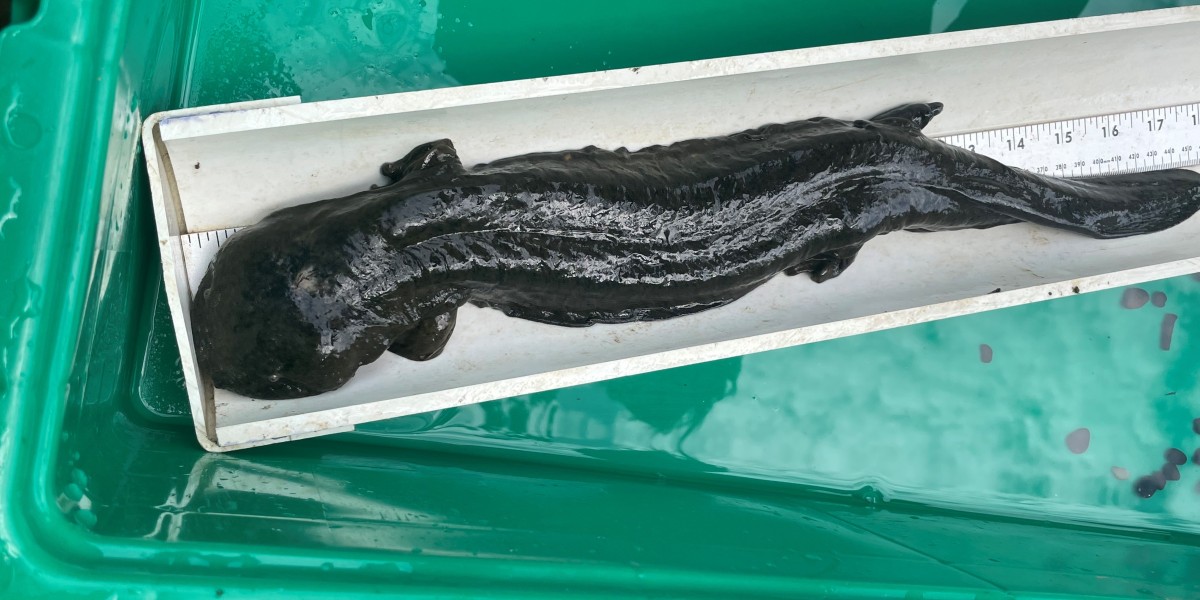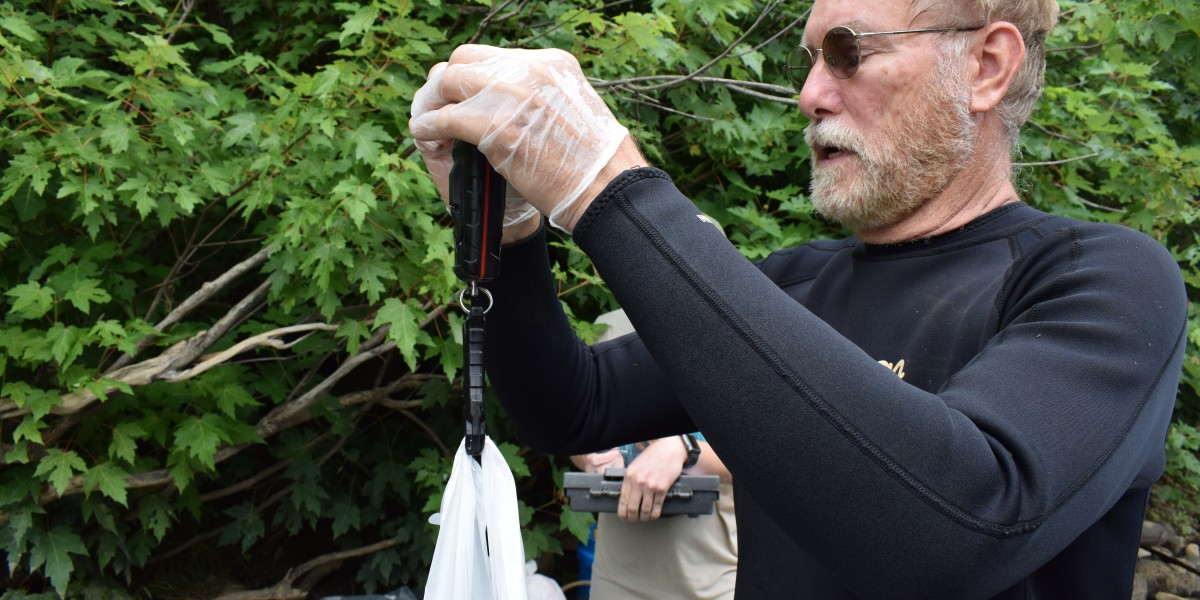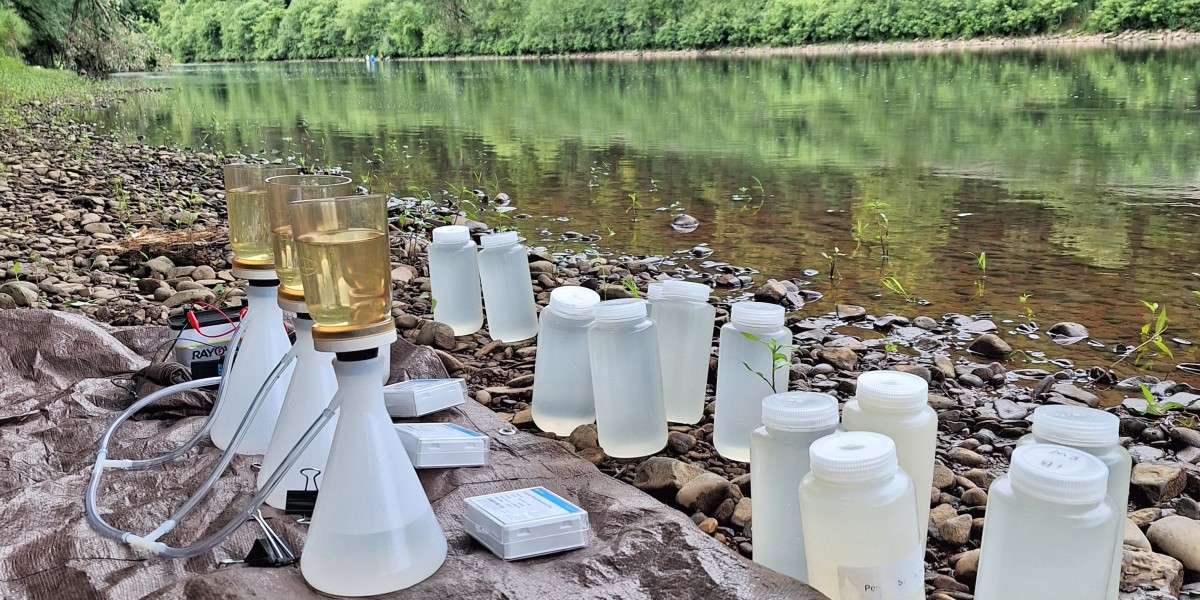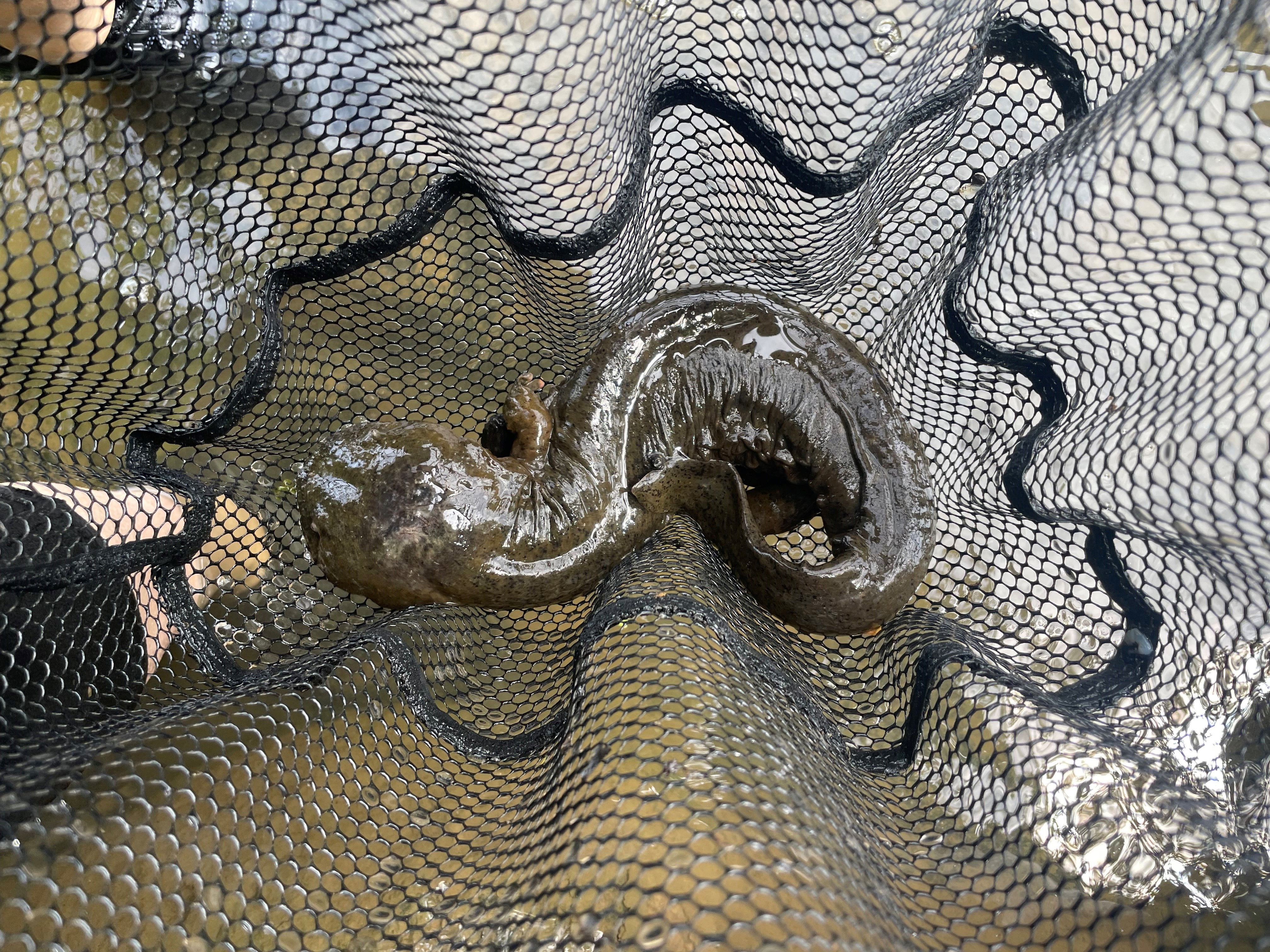You may have heard about biologists and ecologists going “in the field.” What does this mean, and why do they bother?
If you’ve ever seen a person shivering in a snowy field holding binoculars and counting winter raptors, you’ve seen data collection in action via fieldwork. If you’ve ever seen a photo on social media of state wildlife agency folks with a bear cub in their coat, it isn’t (just) for enjoyment; this is field research. If you’ve encountered a bat with a band on its wing, a turtle with triangular notches in its shell, or a deer with a collar, you’ve witnessed the results of fieldwork. If you have seen someone crouching in a swamp, seemingly oblivious to mosquitoes while they count plants and scribble feverishly in a notebook - you got it, fieldwork!
Field research (informally known as fieldwork) in the context of biology and ecology is just what it sounds like--observations and collection of raw data done in a natural setting. Field research is invaluable for many reasons. First, it allows researchers to study things for which there are no lab-based alternatives. Fieldwork shows a “big picture” view that can’t be measured on a lab bench or from behind a computer. It teaches us about not only a single organism but also how that organism fits into its biological community and the broader shared ecosystem. We can observe natural behaviors and seasonal life history changes of animals that may not be seen in captivity. We can work in larger spatial or time scales, such as measuring forest treatment types over decades. Fieldwork also teaches biologists how to put into practice science that we may have learned only in theory via lectures or textbooks. It trains us to anticipate problems in advance and think creatively on our feet in changing circumstances, such as inclement weather or damaged equipment. It fosters not only practical knowledge but a deeper appreciation for the subject matter. Not to mention, in many instances it is FUN!
However, fieldwork can also be grueling, both physically and emotionally. Many field research locations are remote and require intense efforts to get there and work safely. Exclusively field-based jobs are often entry-level positions for people who, to get their foot in the door in a competitive field, may feel pressured to be away from home for long stretches or work for low wages (sometimes just room and board) in exchange for the experience. And unfortunately, sometimes you cause inadvertent harm to the very thing that you are trying so hard to protect. This impact is not often discussed, even among field researchers, because a) it stings personally since we, as scientists and humans, care about our subject matter, and b) we don’t want to give the public a poor perception of us as researchers, particularly when they may not have the background to see the full breadth or benefit of the work and see only the downside, even when it is unavoidable or necessary.
Fieldwork often highlights conflicts in values, such as human use versus biodiversity. Mowing restrictions help keep nesting turtles safe, but they may alter crop production time frames and affect a farmer’s livelihood. Restricting hunting or trapping of a species may help protect these animals but can alter cultural norms or contribute to food scarcity. While drawing attention to some of these tensions, fieldwork can also often provide social context and bring all the key players to the table to find common ground and solutions. There is a sense of camaraderie among fieldworkers, from the shared trials and tribulations and especially from the successes. It brings groups and individuals together that may not have otherwise met, were it not for the call looking for qualified people to rappel into a cave to count bats or to brave the ticks to encounter the world’s smallest turtle species. Collaborations are formed during canoe rides, and problem-solving happens over lunch eaten sitting on logs or backpacks. While technology continues to evolve and we use more advanced technologies to improve our understanding of the natural world, fieldwork will always be the backbone of science.



